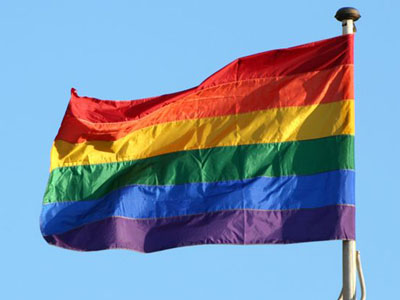-
Pride Month
- Posted on June 26, 2021
- by admin
- in All Articles, NFSB Blog
- Comments Off on Pride Month
 Submitted by Dr. Taji Karim-Reisch, Board of Trustees
Submitted by Dr. Taji Karim-Reisch, Board of TrusteesPride is a deep connectedness to oneself and a belongingness within a community. The month of June celebrates Lesbian, Gay, Bisexual, Transgender, Queer, Intersex, Asexual, Allies and Pansexual (LGBTQIAAP) PRIDE. Over the last decade, the acronym evolved to be inclusive of all identities.
Prior to the late sixties, 49 states considered being part of the gay community illegal—PRIDE was not celebrated—it was denigrated. Same-sex relationships were forbidden, and persons were ostracized for who they loved. Controversary about the gay community persisted for centuries; however, the tone shifted one summer night in NYC.
In the United States, the Stonewall Uprising of 1969 in Greenwich Village, New York catalyzed the Gay Liberation movement. Stonewall Inn was a community bar where LGBTQIAAP patrons openly expressed their identities without abuse. The uprising was triggered by a police raid that aimed to enforce anti-Homosexual laws. The patrons of the establishment aligned to defend their individuality, and against the perception that they are unwell or deviant. These stigmatized individuals demanded civil rights, and their stance became a watershed moment for gay activism and awareness in the NYC community.
One year later, in 1970, the first Pride march was held in NYC, to commemorate the anniversary of the uprising. Grassroots activists fiercely led LGBTQIA from every income, race, and region toward real social change. It was a movement of equal voices that empowered the people to emerge from the closet and transform their fear into purposeful action. In 2021, LGBTQIAAP Pride is celebrated with a month-long series of celebrations, picnics, parades, workshops and demonstrations to promote equal rights. The time is also used to memorialize people who died from hate crimes and HIV/AIDS, and to increase awareness of the positive impact that lesbian, gay, bisexual, transgender, queer, intersex and asexual people have had on civil rights history locally, nationally and internationally.
At NFSB we actively express compassion and justice through our policies. We embrace diversity and inclusivity by providing clinical services that are LGBTQIAAP informed.
Katherine Carmichael, Executive Director, comments, “Our clinical staff is sensitive to how aspects of personal identity combine in complex ways to both advantage and disadvantage individuals in society, an important consideration for LGBTQ+ affirmative interactions. It is through this lens of intersectionality that a range of issues best can be explored for positive outcomes”.
If you enjoyed this article please consider sharing it!
Archives
- July 2024
- June 2024
- May 2024
- April 2024
- March 2024
- February 2024
- January 2024
- December 2023
- November 2023
- September 2023
- August 2023
- July 2023
- June 2023
- May 2023
- April 2023
- March 2023
- February 2023
- January 2023
- December 2022
- November 2022
- October 2022
- September 2022
- August 2022
- July 2022
- June 2022
- May 2022
- April 2022
- March 2022
- February 2022
- January 2022
- December 2021
- November 2021
- October 2021
- September 2021
- August 2021
- July 2021
- June 2021
- May 2021
- April 2021
- March 2021
- January 2021
- December 2020
- November 2020
- October 2020
- September 2020
- August 2020
- July 2020
- June 2020
- May 2020
- March 2020
- January 2020
- November 2019

















